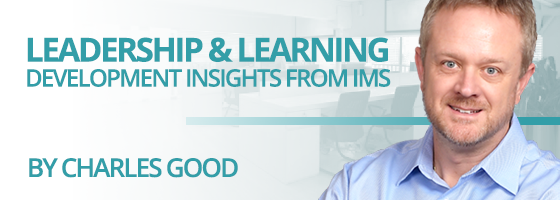The number one question that productivity expert and author Helene Segura gets asked is ‘what is the best calendar, task app, system to use to become more organized and productive?’ However, as Helene Segura states in her book, The Inefficiency Assassin: Time Management Tactics for Working Smarter, Not Longer, the key to productivity is not the system that you are using but training your brain to think. As she explained during her recent program for The Institute for Management Studies, however, having a proven process or system in place will definitely help you work smarter, not longer.
One of my favorite books that provides a proven system for getting more done is David Allen’s, Getting Things Done: The Art of Stress-Free Productivity. This task management system allows one to dump all the mental clutter into an external system and the organize it so you can focus on the right things at the right times. David explains that it is these open loops that make us anxious and prevent us from fully focusing on what we are doing.
Helene offered many tools for accomplishing this goal during her IMS program. The following represents some of the ideas that Helene shared that I have found to be effective in closing these open loops and turning to-do lists into done lists, and for helping you work smarter, not longer.
THE POWER OF 3+3
At the end of the day, select the top three tasks that you need to get done the following day. Then choose three additional tasks that are your next three most important tasks. These tasks are your 3+3. Number them on your calendar for the next day (1, 2, 3, …) and associate them with certain time blocks, which is explained below.
A list of only three tasks is doable. It also ensures that you complete high-value work during each day. Often, you will fall in the rabbit hole of low-value work throughout the day as urgent matters arise and emails need to be responded to. The additional three items are there for those super productive days where everything is falling into place and you have time to spare after completing your top three priorities. They can also be used when for whatever reason you are not able to do your top three but manage to complete +3 tasks.
CHOP DAYS
Build into your schedule at least two CHOP hours per week or two days per month. CHOPs are those little items that are boring, difficult, annoying, or delayed since you have not made a decision. This blocked off focus time at periodic intervals allows you to chop through this stuff so that it will no longer be looming over you, causing unnecessary anxiety and mental clutter.
TIME BLOCKING TO WORK SMARTER
This time management system constrains your hours not your tasks. It gives every hour a job to do. As Peter Drucker stated, “Effective knowledge workers, in my observation, do not start with their tasks. They start with their time.”
First assign time blocks for your 3+3 tasks. Until you become more familiar with this system I would suggest either adding buffer times after each task or simply extend each allocated task time by 25-35%. The common tendency is to underestimate the amount of time you need to complete a task. Also, these buffer times allow for unexpected items that will inevitably come up during the day. Next, make sure you add time blocks for busy work (checking email, etc.), meetings and appointments. Finally, make sure to add a block of 30 minutes at the end of the day to reflect on your day, and schedule for the next day.
No productivity system is perfect. And everyone has lapses or has days where they fall off their productivity system. However, the successful ones minimize those lapses and do not aim to do more at first; they just try to do the same amount of work with the system. Only after using a system like this consistently over a longer period of time do they increase their workload, and they only do so gradually. Hopefully, by following using these tools you will begin to work smarter, not longer.
I will leave you with the following quote form Peter Drucker extolling the importance of time management. He stated, “Time is the scarcest resource and unless it is managed nothing else can be managed.”
ABOUT CHARLES GOOD
Charles Good is the president of The Institute for Management Studies, which provides transformational learning experiences that drive behavioral change and develop exceptional leaders. Charles is an innovative and resourceful leader who specializes in bringing people together to develop creative organizational and talent strategies that enable business results. His areas of expertise include assessing organizational skill gaps and leading the design, creation and delivery of high impact, innovative learning solutions that achieve business goals.

2 Comments